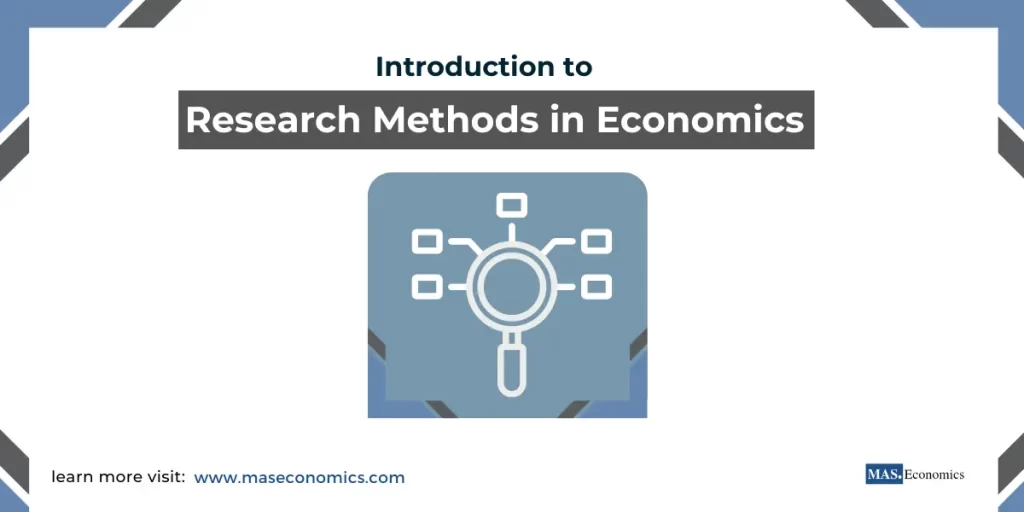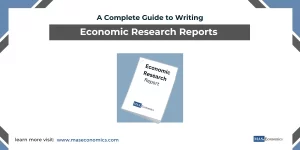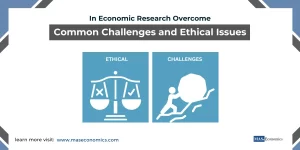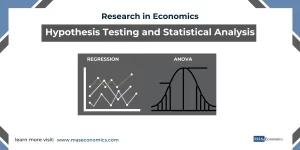Research methods in economics are the tools that enable economists to delve into data and generate insights that guide economic thinking. From understanding consumer behavior to assessing the impacts of monetary policies, research methods form the foundation upon which economic theories are tested and refined. In short, without rigorous research methods, economics would remain a field of abstract ideas rather than a science grounded in real-world data.
Research in economics is both an art and a science. It combines theoretical frameworks with empirical data, using statistical tools and methodologies to unravel the intricate workings of markets, industries, and national economies. By understanding the research methods in economics, individuals can contribute to knowledge that helps address the economic challenges of today and tomorrow.
The Importance of Research in Economics
Guiding Policymaking
Governments and policymakers heavily rely on research to craft policies that promote economic growth, stabilize inflation, and reduce unemployment. For instance, before introducing a new tax policy, extensive research is conducted to predict how it will affect consumer spending, business investment, and government revenue. The ability to use data to forecast the outcomes of different policies allows governments to choose the most effective measures for long-term economic stability.
Supporting Business Decision-Making
In the business world, research methods in economics are indispensable for making informed decisions. Companies use economic research to assess market trends, predict consumer behavior, and make investment choices. For example, a firm looking to expand into a new region would rely on market research to estimate demand, assess competition, and determine the viability of the expansion. Understanding economic data helps businesses mitigate risks and seize opportunities in a highly competitive market.
Shaping Economic Theories
Economic research also contributes to the refinement and development of economic theories. Theories such as supply and demand, market competition, and inflation are constantly tested through empirical research. As new data becomes available, economists can either validate these theories or propose modifications to account for evolving economic realities. In this way, research methods serve as the bridge between abstract economic models and the real-world economy.
The Goals of Economic Research
Economic research is a structured, systematic process designed to answer key questions, solve problems, and advance knowledge in the field. Each research project is driven by specific goals, ranging from understanding basic economic principles to solving complex problems that affect entire nations. Broadly speaking, the goals of economic research can be categorized into three main areas: exploring new questions, testing existing theories, and solving real-world problems.
Exploring New Questions
One of the primary goals of economic research is to explore new and emerging questions. For instance, as technology continues to transform industries, economists are exploring the potential impacts of artificial intelligence (AI) on labor markets, productivity, and global trade. Exploratory research allows economists to identify trends, generate hypotheses, and lay the groundwork for future studies.
Exploratory research in economics is particularly important because the field is dynamic. New global events, such as financial crises, pandemics, or technological revolutions, require economists to constantly adapt and seek new insights into how economies function.
Testing Theories and Models
Another essential goal of research is testing economic theories and models against real-world data. For example, economists might test the validity of the Phillips Curve, which suggests an inverse relationship between inflation and unemployment. By using historical data, they can assess whether this relationship holds true under various economic conditions.
Testing theories allow economists to either confirm or refute long-standing ideas about how economies work. It is this rigorous process of hypothesis testing and empirical analysis that ensures the credibility of economic theories used by governments and businesses.
Solving Economic Problems
Finally, economic research seeks to solve pressing problems that affect society. Whether it’s addressing income inequality, managing inflation, or promoting sustainable development, economic research provides data-driven solutions to these challenges. For example, researchers might study the effects of minimum wage increases on employment levels to offer evidence-based recommendations for policymakers.
In a globalized world, solving economic problems often involves collaboration across borders. Researchers from different countries may work together to tackle issues like climate change, trade disputes, and financial crises, using their expertise to propose solutions that benefit the global economy.
The Research Process in Economics
The research process in economics is methodical, following a structured pathway from problem identification to solution. Here is a brief outline of the steps involved:
Defining the Research Question
The first step in any economic research is identifying the problem or question to be addressed. For instance, “What is the impact of interest rate changes on housing prices?” would be a typical research question.
Formulating a Hypothesis
Once the question is defined, the next step is to develop a hypothesis — a testable statement predicting the outcome of the research. In this case, the hypothesis might be: “Lower interest rates will lead to an increase in housing prices.”
Collecting Data
Data collection is crucial to research. Economists rely on a variety of sources, such as government reports, surveys, and financial databases, to gather the information needed to test their hypotheses.
Analyzing Data
After collecting data, economists apply statistical methods and econometric models to analyze the data. This step often involves testing the strength and direction of relationships between variables.
Drawing Conclusions
Based on the data analysis, researchers conclude whether their hypothesis was correct and what implications their findings have for economic theory or policy.
Reporting Results
Finally, the research is documented and shared with others, often through academic journals, policy reports, or presentations to businesses or governments.
Conclusion
Research methods in economics are the backbone of informed decision-making, effective policymaking, and theoretical development. Without rigorous research methods, economists would be left with little more than guesswork when attempting to understand complex market dynamics, evaluate policies, or forecast economic trends. By systematically exploring questions, testing theories, and solving problems, research methods enable economists to contribute valuable insights that shape the future of both local and global economies.
As we move forward in this series, we will delve deeper into the specific tools and techniques used in economic research, providing you with a thorough understanding of how to apply these methods in your economic inquiries.
FAQs:
What are the main research methods used in economics?
Economics research methods include qualitative approaches like case studies and interviews, as well as quantitative methods such as regression analysis, econometrics, and data modeling. These tools help economists analyze market trends, test theories, and inform policy decisions.
Why is research important in economics?
Research in economics is crucial because it provides empirical evidence to support or challenge economic theories. It helps policymakers make informed decisions, businesses to predict market behavior, and academics to advance economic knowledge.
How does economic research guide policymaking?
Economic research informs policymaking by providing data-driven insights into the potential effects of policies on economic growth, inflation, employment, and other macroeconomic factors. For example, research is used to evaluate the impacts of tax reforms or monetary policies.
How do businesses benefit from economic research?
Businesses use economic research to forecast market trends, assess risks, and make strategic decisions. For instance, research can help companies understand consumer demand, analyze competition, and plan expansions into new markets.
What is the role of economic research in shaping theories?
Economic research tests existing theories and models by comparing them with real-world data. It helps refine, validate, or challenge long-standing theories like supply and demand, inflation, and market competition, contributing to more accurate economic models.
What are the primary goals of economic research?
The main goals of economic research are to explore new questions, test existing theories, and solve real-world problems. This research helps advance economic knowledge and provides solutions to issues like income inequality, inflation, and sustainable development.
What steps are involved in the economic research process?
The economic research process involves several steps: defining a research question, formulating a hypothesis, collecting and analyzing data, drawing conclusions, and reporting the results. This structured approach ensures that research is thorough and credible.
How do economists collect data for research?
Economists collect data from a variety of sources, including government reports, surveys, financial databases, and historical records. This data is then analyzed using statistical and econometric tools to draw meaningful conclusions.
Thanks for reading! Share this with friends and spread the knowledge if you found it helpful.
Happy learning with MASEconomics




